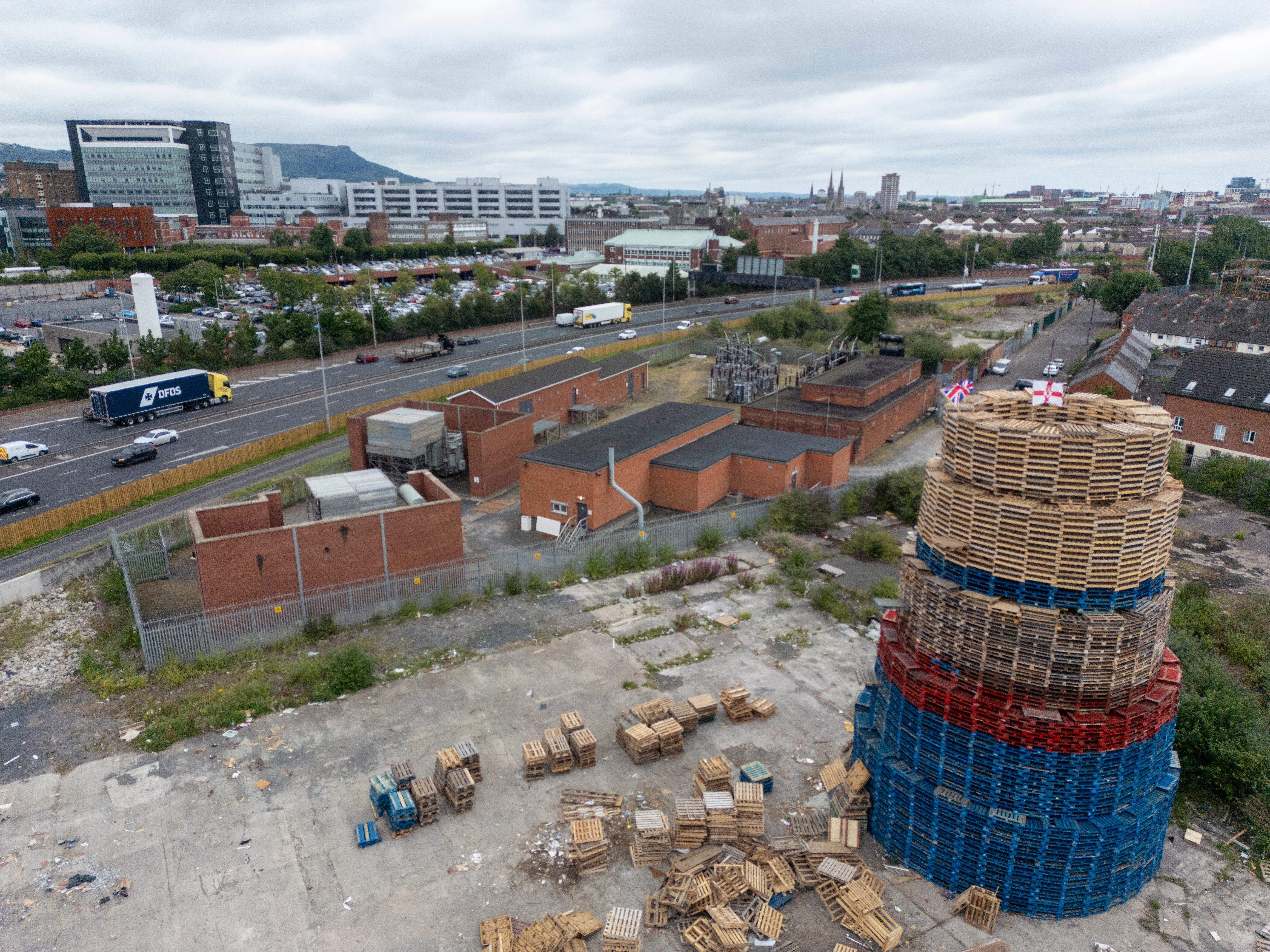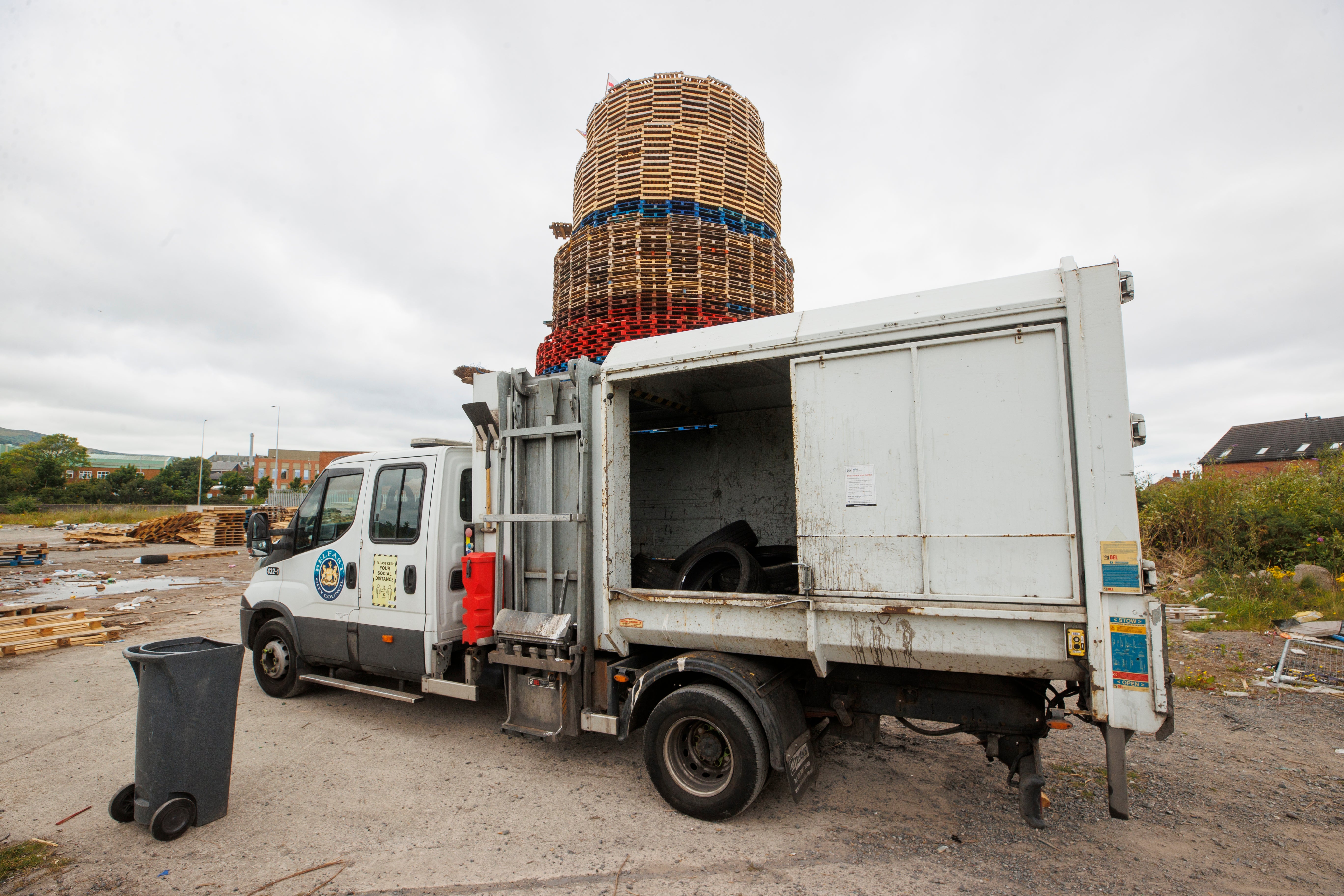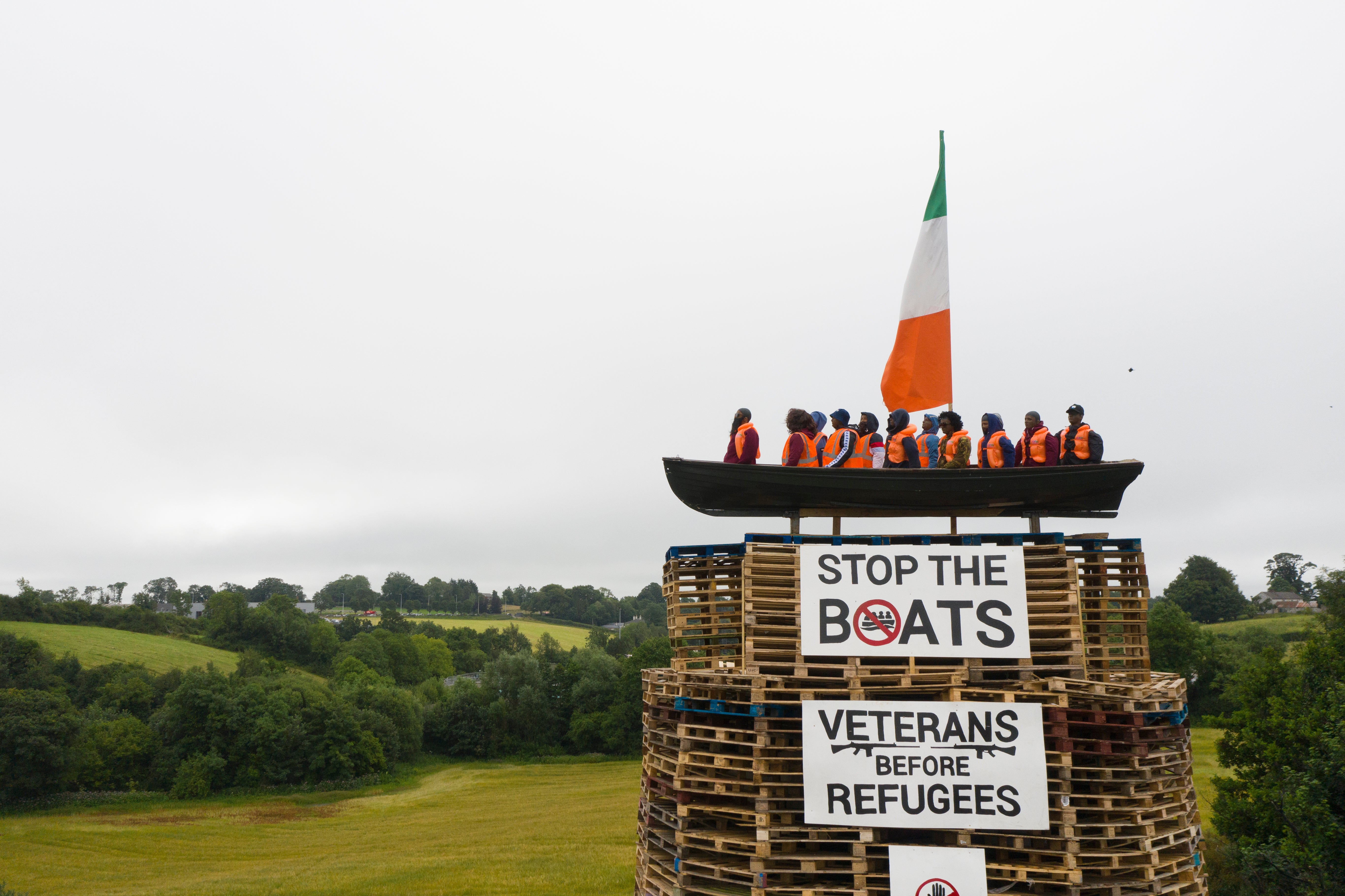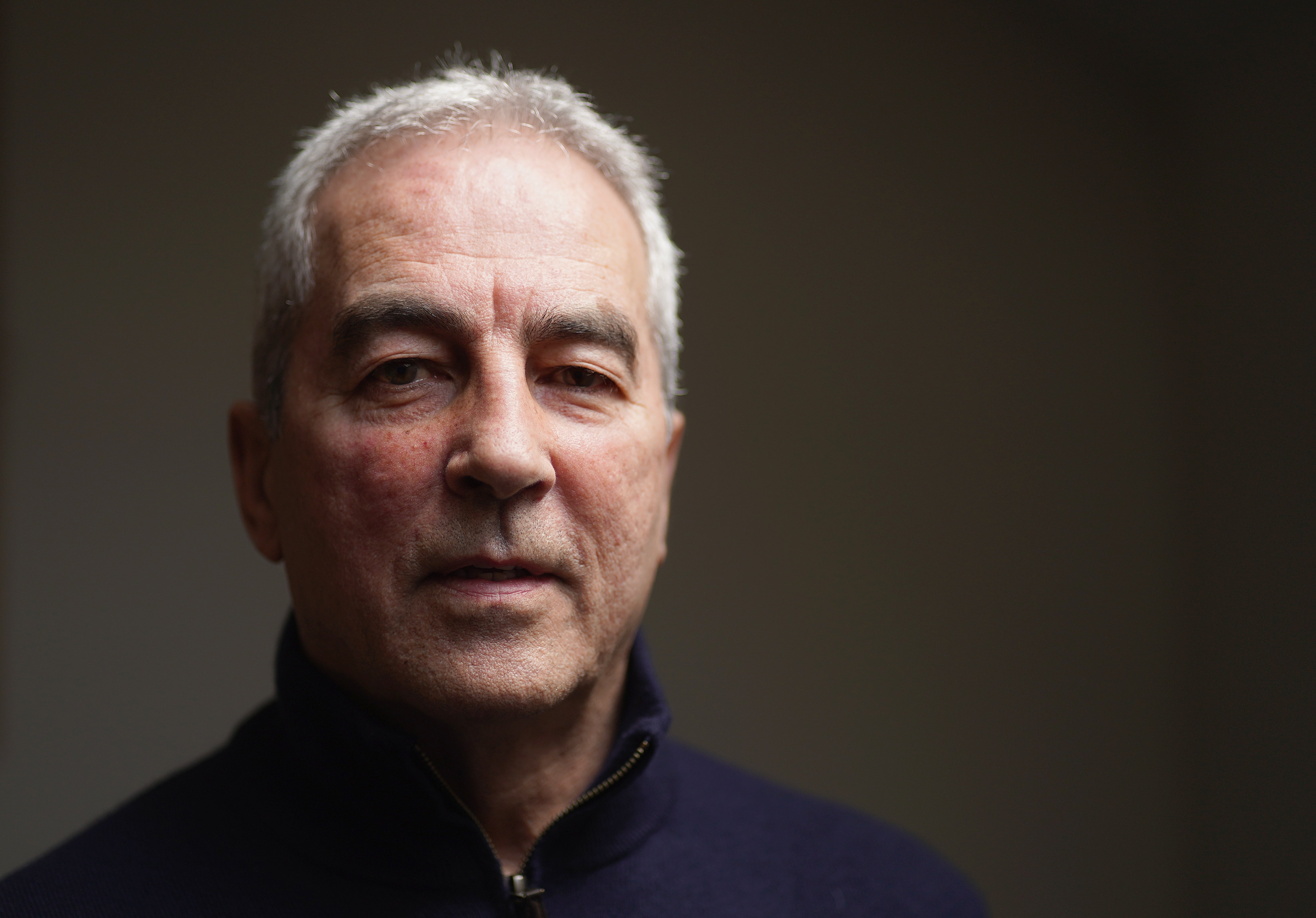Tensions are continuing to smoulder around two controversial loyalist bonfires in Northern Ireland as time ticks down to when they are due to be lit.
In Belfast, a city council committee voted on Wednesday to send contractors to remove a towering pyre on Meridi Street off the Donegall Road.
The Police Service of Northern Ireland (PSNI) declared it a “major incident” as the force considers a request from the council to help contractors remove it.
Here the Independent looks at the history of bonfire night in Northern Ireland and why they have become a political flashpoint and public safety concern this year.
Why are bonfires lit in Northern Ireland?
Every July 11, bonfires are lit late in the evening in some Loyalist areas in Northern Ireland. The traditional fires are lit ahead of the main date in the parading calendar of Protestant loyal orders, the Twelfth Of July.
The Twelfth commemorates the victory of protestant King William of Orange over the Catholic King James II in the Battle of the Boyne in 1690.

Protestant communities light bonfires in tribute to the fires that were lit to guide King William.
There are around 300 bonfires set to be lit across Thursday and Friday night ahead of the Orange Order’s July 12 parades on Saturday.
Some object to the bonfires on political and cultural grounds, particularly when they are lit near Nationalist areas and involve effigies and flags being burnt.
Nationalist areas of Belfast are those where people who identify as Irish and support a united Ireland traditionally live. While Loyalist areas are where people who identify as British and traditionally want Northern Ireland to remain in the United Kingdom live.
What has sparked the controversy this year?
In Belfast, a city council committee voted to send contractors to remove a towering pyre close to an electricity substation in the south of the city which powers two hospitals, on a site which also contains asbestos.
On Wednesday night, the Police Service of Northern Ireland (PSNI) said it had received a formal request for assistance from the council to support contractors to remove the bonfire on Meridi Street off the Donegall Road.
A PSNI spokesperson said they had declared it as a major incident, and a Tactical Coordination Group had been established with multi-agency partners to ensure joint understanding and to comprehensively assess all of the risks associated with this request.

“No decision has been taken at this stage and we continue to work with our partner agencies and community representatives on this matter,” they added.
Crowds took to the street on the Donegall Road in south Belfast late on Wednesday night vowing to remain on site all night to defend the bonfire.
Some fireworks were set off and a smaller bonfire set alight, while a car was placed to block the entrance to the site on Meridi Street.
Meanwhile, there have been calls to remove effigies of migrants in a boat that have been placed on a loyalist bonfire in Moygashel on the outskirts of Dungannon in Co Tyrone.

The boat containing more than a dozen life-sized mannequins wearing life jackets was unveiled on top of the bonfire. Below the boat are several placards, one stating: “stop the boats”, and another: “veterans before refugees”.
Overnight, an Irish tricolour flag was also placed on top of the bonfire, which is scheduled to be lit on Thursday night.
What has been the political reaction?
Sinn Fein said it is “unthinkable” that the loyalist bonfire in Belfast should be allowed to go ahead.
Party MLA Pat Sheehan said the bonfire risked “endangering lives, damaging property and putting critical infrastructure at risk.”
While the DUP leader on Belfast City Council Sarah Bunting said the council decision to dismantle the bonfire was “foolhardy” and risked increasing tensions with the local community.

In a social media post she said: “The decision to remove the bonfire was made without adequate consultation or consideration of community impact, and we believe it requires further scrutiny.”
“This decision is political not a health and safety one.
“It is foolhardy and has ramped tensions up in an area which has suffered considerably from interface problems.”
Meanwhile, Church of Ireland Archbishop of Armagh and Primate of All Ireland John McDowell described the effigy of migrants in a boat on the separate bonfire in Co Tyrone as “racist, threatening and offensive”.
He added: “It certainly has nothing whatsoever to do with Christianity or with Protestant culture and is in fact inhuman and deeply sub-Christian.”
Sarah Montgomery death has left ‘deep wound’ on family and community
Little-Pengelly urges people to stop playing politics over Belfast bonfire
Unthinkable that Belfast bonfire could be allowed to go ahead – Sinn Fein
Starmer and Macron detail one in, one out migrant returns scheme
Reform councillor says small boats migrants are from ‘unenlightened cultures’
Fact check: ‘Channel migrants’ in prison and fake ‘Amazon’ deals







